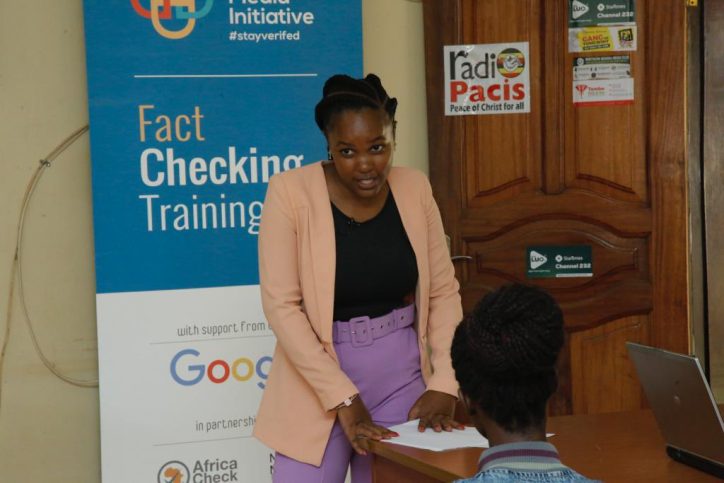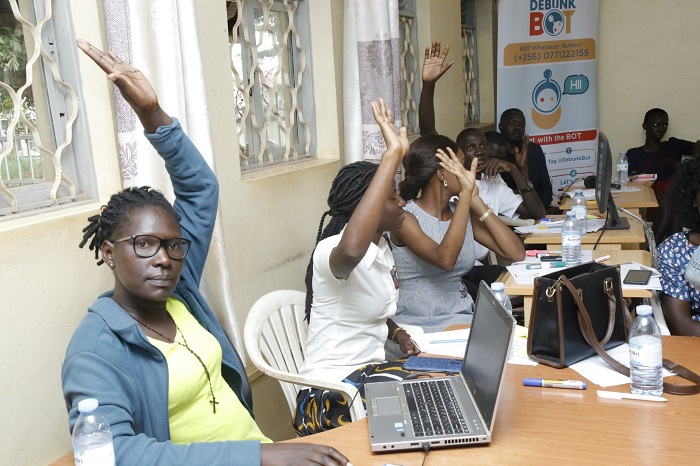Media practitioners from various institutions and media houses completed a two-day capacity and skills enhancement session on fact-checking to debunk fake news, misinformation, mal-information and disinformation.
The training facilitated by Debunk Media Initiative, a fact-checking non-profit making organization, offered two-day training on theoretical and practical sessions held at the Northern Uganda Media Club (NUMEC), in Gulu City from 11 to 12 July 2023.
The Debunk training brought a total of 20 journalists from Lira City and Gulu City; Amuru, Kitgum, Pader, Moyo, Agago and Nwoya districts to contribute to skilling the media professionals to be able to detect misinformation, which is inaccurate information with harmful intentions.
Another interesting aspect was disinformation, false information intended to mislead the audience, but most often leading to the distortion of facts and public opinions.
Head of Production at Debunk Media Initiative, Rukia Nabbanja called on the journalists to always take keen note of experts while having interviews especially those who tend to hide behind the shadows of using technical terms and data.
It’s against this background that she challenged journalists to always go as far as digging deep into the real meaning of such terms and also break them down for the target audience.
“Verifying sources and the authenticity of the data that sources usually quote,” Nabbanja added.

During an exclusive interview with TND News’ Nancy Atim, Edgar Matthew Karuhanga, the lead fact-checker at Debunk Media Initiative said that there is a big gap in the media space for fact-checkers. He called upon the equipped journalists to now put the learned skills into practice.
According to Karuhanga, the training will help journalists in future to inculcate the culture of fact-checking in Ugandan media space that will in the long run be useful at the different media houses to fully verify and prove the information before it goes into public domain.
He added that media plays a key agenda – “setting role” but sometimes falls short of the means to delink from the ever-growing and evolving digital era of fake news, misinformation and also disinformation.
“We’ve fully given them everything they need but, we have given them the basics to start because two days is a short time but after some time, feel like the journalists will start doing fact-checking. Basing on the two-day training, there is evidence that knowledge has been passed on and we strongly believe that fact checks will change their communities,” said Karuhanga.
Rosemary Anena, a freelance journalist based in Gulu city said that the training “came in at the right time” since she has been doing a disservice to herself and the audience by sharing some information unknowingly yet it was harmful in some way.
“Before the training, I was totally green about fact-checking and the tools used in fact-checking,” said Anena.
Anena further said that the training will now enable her to publish stories that are fully verified, proven, evidence-based and measurable for public consumption.

